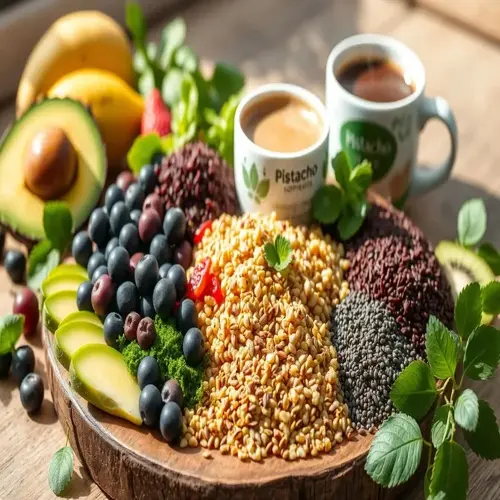Which plant foods best support collagen production?

Written by
Natalie Hamilton
Reviewed by
Prof. Benjamin Murphy, Ph.D.Plant foods do an excellent job of promoting collagen production. It's the nutrients found in these plants that support your body in the manufacture of collagen. Unlike animal sources, plants provide you with vitamin C, sulfur compounds, and isoflavones for the activation of fibroblast cells in the collagen factories of your body. These nutrients work together to build and maintain the collagen matrices in your skin and joints.
Bell peppers contain twice as much vitamin C per serving as oranges. The nutrient is responsible for transforming amino acids into functional strands of collagen. Garlic provides sulfur so that it can form disulfide bonds that strengthen collagen matrices. For maximum benefit, crush garlic before it is cooked to produce allicin (its key sulfur compound).
Daily Foundation Foods
- 1 bell pepper with lunch
- 2 garlic cloves in dinner
- Handful pumpkin seeds as snack
Weekly Rotation
- 3 soy servings: tofu/tempeh/edamame
- 5+ leafy green servings
- 2 berry meals for extra vitamin C
Preparation Tips
- Lightly steam greens to preserve nutrients
- Ferment soy for enhanced isoflavone absorption
- Combine with citrus for mineral uptake
Isoflavones in soy directly stimulate fibroblast activity, the cells responsible for producing collagen. Fermented foods such as tempeh provide more bioavailable isoflavones. Leafy green vegetables help provide chlorophyll, which neutralizes collagen-damaging free radicals. Pumpkin seeds provide zinc, which is essential for the enzymatic processes that maintain collagen integrity.
I directed a vegan client who utilized these plant-based strategies. She ate salads with peppers and sunflower seeds daily, accompanied by roasted vegetables seasoned with garlic. After three months, her skin elasticity had improved greatly. Plant collagen support works very well when a mild, diverse diet is maintained consistently. Start today with one meal of collagen-boosting foods.
Read the full article: 10 Collagen Boosting Foods for Healthier Skin

